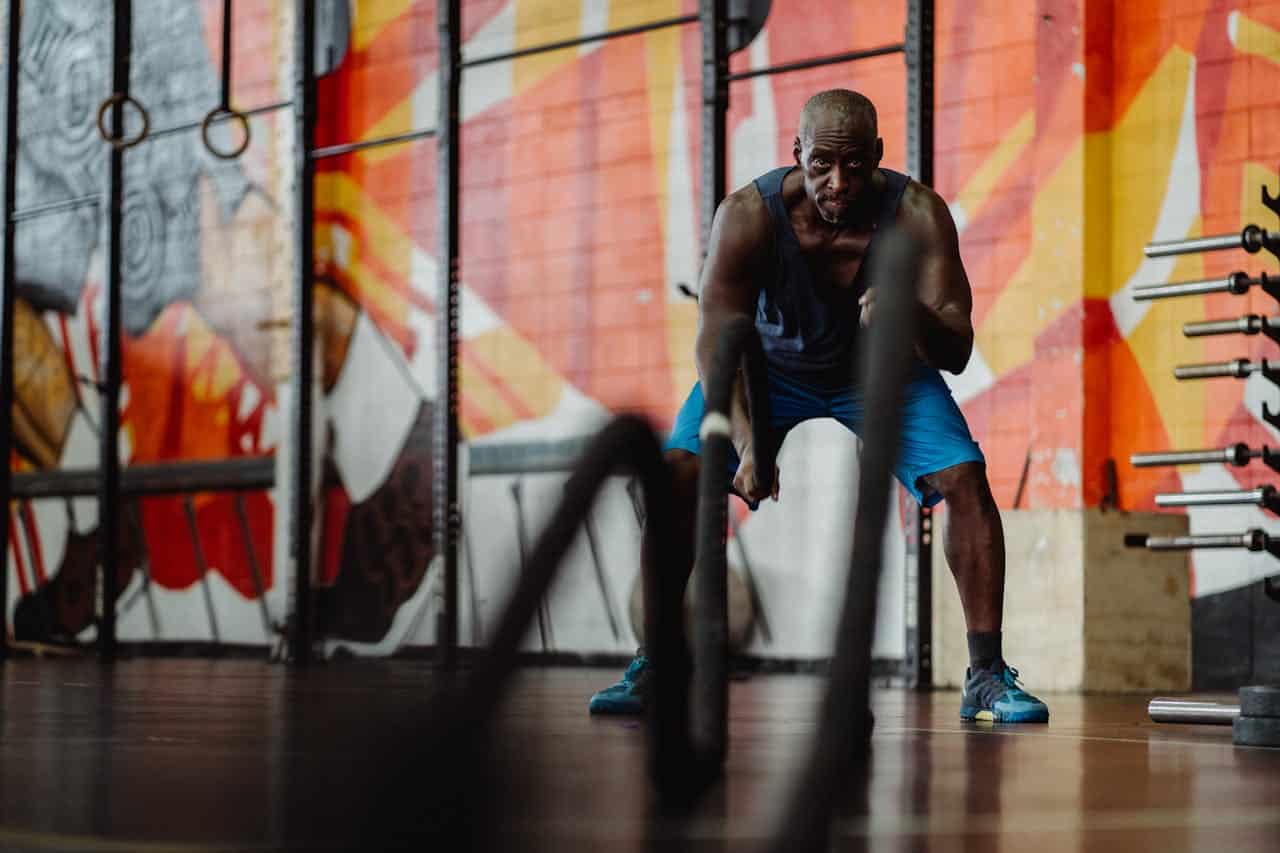Why men lose muscle mass as they age is an important issue. Muscle loss is a natural part of the ageing process for men – after the age of 30, we begin to lose between 3% and 5% each decade.
This is brought on by a perfect storm of hormonal changes, reduced muscle protein synthesis, lower testosterone and decreased physical activity.
Most men will shed about 30% of their muscle mass during their lifetimes with a fittingly unpleasant name: sarcopenia.
Losing muscle mass causes serious issues such as increased weakness, reduced mobility and greater risk of chronic diseases. But the good news is that we can slow down this unwelcome process.
It’s never too late for middle-aged men to rebuild and maintain muscle, and there are three ways to do it: exercise, diet and lifestyle.
Exercise
You won’t be too surprised to learn that strength training is an effective way of maintaining or even increasing your muscle mass in middle age.
Several studies have found that resistance training can counter muscle weakness as people age. You can sign up for a gym but the quickest and cheapest to get going is have your own home gym gear and combined with bodyweight exercises such as squats, lunges, and push-ups.
As you get to the gym try carefully lifting heavier weights or do more reps. Take advice and listen to your body.
Diet
Your diet goes hand in hand with building muscle mass. You should eat a wide variety of nutrient-rich foods across different food groups. For middle-aged men aiming to build muscle mass, a diet rich in protein, vitamins and fibre is essential.
To build muscle you need protein: when you’re aiming to increase muscle mass, your body needs more protein. Studies have found that diets higher in protein can help prevent age-related declines in muscle mass. Vitamins and micronutrients also play a crucial role because they can improve muscle function and prevent muscle atrophy.
Consider obvious food items like steak, chicken, eggs and cheese. If you are vegetarian or vegan then pulses, nuts (like pistachios say) and beans are classic sources.
Lifestyle
Your lifestyle can also be a factor. For example, when you’re anxious, your body releases cortisol as you go into a fight or flight response. This hormone speeds up the breakdown of proteins, including muscle proteins, which can lead to a decrease in muscle mass and strength.
Minimise stress by mindfulness, meditation, deep breathing, relaxing hobbies, or even just reading a book rather than doomscrolling on your phone.
Proper hydration is essential for keeping your workout effective for muscle growth. It boosts nutrient delivery and muscle repair and also improves your overall performance during workouts. If you get dehydrated, this can hinder muscle protein synthesis, lower your energy levels and prolong your recovery time.
Proper sleep is essential. It’s when your body releases anabolic hormones such as testosterone and growth hormone, which your body needs for muscle building and recovery. Sleep is also when your body repairs any microscopic tears in muscle tissue caused by exercise. If you get too little sleep, this can reduce muscle protein synthesis, which can hinder muscle growth and make it harder to gain muscle mass.
See our earlier blog post on preventing osteoporosis.
Further reading
Sources of protein for vegans and vegetarians
Why men lose muscle mass in middle age – and how to combat the process
Photo by Ketut Subiyanto: https://www.pexels.com/photo/man-in-blue-tank-top-and-blue-shorts-doing-battle-rope-workout-4720798/

